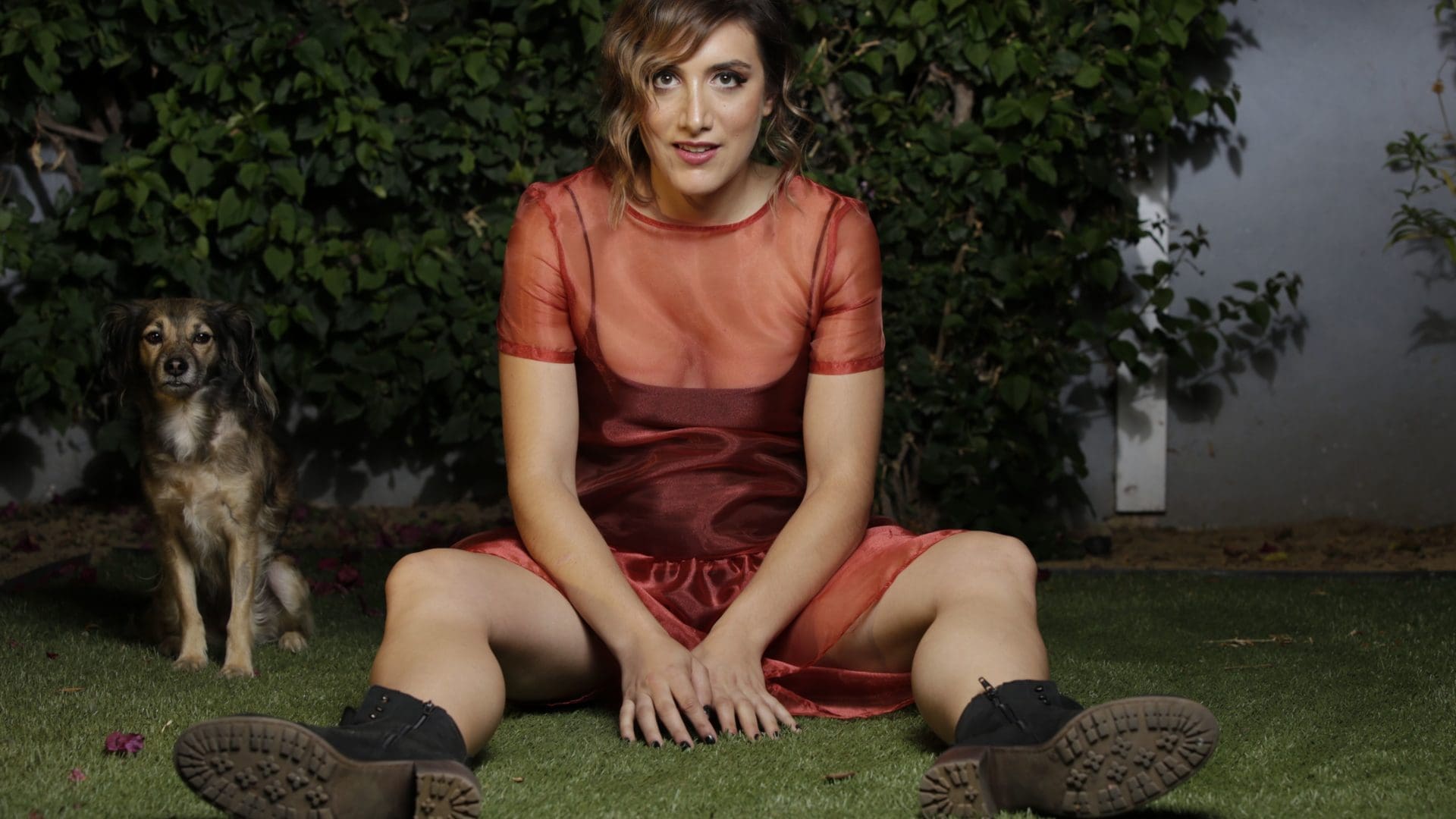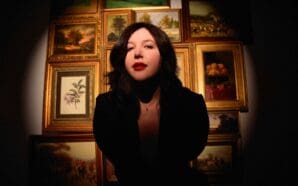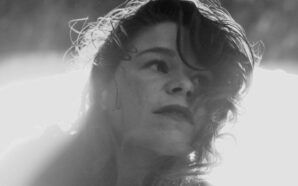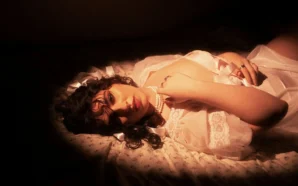“My goal is just ‘to be seen,’ and I don’t mean that in some narcissistic way, but ‘to be seen’ just meaning to exist,” says BEVERLEE. BEVERLEE has been in the music industry for more than a decade now, although until recently, she’s primarily co-written for other artists and penned jingles and television music to pay the bills. She’s perhaps best known for Xenia Ghali’s 2016 hit “Places,” in addition to “American Pie,” which she co-wrote with Black trans artist Shea Diamond. However, this Friday, May 28th, BEVERLEE’s own debut album, Purple Violin, hits the streets. The album is a product of BEVERLEE’s years in the songwriting industry, her coming out and divorce, and her move from New York to LA in 2017, where she’s come to work with a plethora of other like-minded queer artists.
The BEVERLEE project began as a sort of tribute to the musician’s cousin, Beverlee, an artist who was murdered in 1970 by her Hells Angels (sic) boyfriend. Unfortunately, between Beverlee dancing at a strip club to pay for college and her family lacking the funds for a proper legal team, her boyfriend got off, the incident never made a major media splash, and the family was encouraged to try to attempt to forget about it. “We were taught to be ashamed of that trauma,” BEVERLEE tells me during a recent chat. The story of her cousin, which BEVERLEE wasn’t even particularly aware of until moving out to LA, came to mirror BEVERLEE’s own story of living in the closet well into adulthood and doing her best to mute her identity: “When I was starting out as a songwriter songwriters were kind of discouraged from showing themselves because you didn’t want to seem like you were competing with the artist… And I came from a family where it felt like, they were always supportive but, because they were in more conservative career paths and because of Beverlee, there was this fear of drawing too much attention and shining too bright and the fear of judgment of other people.”
“I guess the end of the story is I started coming to LA more to write with other artists and I worked with a lot of queer artists and I was wearing my identity on my sleeve,” BEVERLEE tells me. She also tells me that she had tried being an artist after graduating college, when she got a gig touring with Barenaked Ladies in 2010, before she got into the songwriting business, but it just didn’t feel right for her: “It was really just that I had trouble with art direction and branding, and I was tired of the artist touring style.” Her latest sounds, however, seem to have come naturally with her move to LA: “Anytime a pop artist cancelled a session, I was like, ‘Well, I’m not gonna not write today.’ And some of the songs I’d been writing were so personal, they couldn’t be for anyone but me. And at that point I was just making stuff that I thought was cool, because I really enjoyed it.”
During a conversation about Fiona Apple’s Extraordinary Machine (which BEVERLEE learned to play in full recently, when she took up piano lessons during the pandemic) the singer/songwriter tells me, “I’ve been describing my sound as, ‘jenky orchestral-meets-pop production.’ And I’m just realizing this as I’m talking to you, but I’m sure it was inspired by [producer] Jon Brion and the way he treats orchestra instruments, in not a classical way.” She also tells me, “I’m more on the indie or alt side of pop. I’m not trying to be like a mainstream artist,” referencing her appreciation for St. Vincent and Kate Nash, a neighbor of hers that she hopes to one day work with: “Kate Nash live in my neighborhood and we’ll wind up at the same coffee shop. To write with her would be a dream. That’s the state I want to exist in, like if I could open for Kate Nash on tour, that would be perfect.”
To accompany the album, BEVERLEE has released videos for her first three singles (“6X,” “White Piano,” and “Logic Is Lost.”), all starring Caroline Blaike (ASL interpreter, known for her work with Billie Eilish) as a sort of queer (or queer-er) take on the Alicia Silverstone character from Aerosmith’s most famous video trilogy. The videos were directed by filmmakers Kacy Boccumini and Raechel Zarzynski, who have also become part of BEVERLEE’s artistic family out in LA. And when I ask the singer/songwriter what she’s hoping for in 2021, she tells me that she’s just hoping to further establish herself and do more things like this.
“I just want to be a working artist, make music, and collaborate with other artists. What I’ve been spending my time doing is art directing stuff and making these music videos with all my queer friends. I just want to be sharing myself and sharing my art and hopefully people like it. I want to build this new shell, which is a huge, holistic thing. The album itself is about identity… I’d like to build a fanbase… I eventually, when the world opens up, I’d like to start playing shows in LA. My goal is really just to have a very loyal following of fans, people who relate to my music.”








